#AGN Media
Text
Editorial endorsements ... do they matter?
One of the aspects of a presidential election that I do not miss is having to go through the editorial endorsement process for the candidates who are lined up in spots along a lengthy ballot.
I went through that process seemingly every year for nearly four decades. We’d do it every even-numbered year for legislative and congressional races. We would do the same thing every four years when the…

View On WordPress
0 notes
Text
Plurality on the Disc
CW: Fatphobia, euthanasia
One thing you can always say about Pratchett was that he did not believe in prejudice. The man saw the world through a lens of satire and yet in all things he attempted to see the humanity in all things and tried to bleed that compassion into the world he created, especially with the modernization of the central city, Ankh Morpork.
Pratchett's works as early as the 90s were showing positive trans representation in Cheery Littlebottom, a dwarf who opts to present femme within a culture that treats displays of gender other than the "default", without acknowledging the inherent bias that the "default" gender presentation within Dwarf culture is masculine. It seems Pratchett was able to display "Male or Political" as a fallacy long before toxic gamer culture.
Sensing that the audience may have found this too subtle he went on to write Monstrous Regiment in 2003, a story about a group of women who take up arms, disguise their gender and live as men to fight in a war. As many things on the Disc it was written with fantasy and satire in mind and yet was incredibly detailed in historical accuracy. As trans-folx continuously remind: "We have always been here"
Today's topic, though, is on plurality. Typically in Media, Myself and I essays we focus on depictions of DID with an emphasis on psychopathology. Pathology and mental illness do not really factor into the fantasy world of Discworld. One need only look at the "Sideflashes" depicted in Monstrous Regiment, those being moments where a vampire character has traumatic hallucinations of the Vietnam War of our world, to know that Pratchett is more interested in satirizing the genre mediums he is working within rather than depicting accurate portraits of real mental illness.
That said, in one of his final books, Thud! Pratchett did have a character with two distinct personalities who could withhold information from one another say "It's supposed to be an illness, but all I can say is, we've gotten along well."
Pratchett always leads with compassion and in all of his work he does his research. Though he never wrote much about the supposed illness mentioned in Thud!, he has written plural characters and we're going to focus on one right now.
The books in question are Maskerade (1995) and Carpe Jugulum (2003). These books heavily feature the characters Agnes Nitt and Perdita X Dream.

The first of the two stories is a parody of The Phantom of the Opera with a heavy emphasis on the real life stress and drama behind the scenes of any stage performance. A must read for any theatre kid who wishes to see 'the show must go on' taken to ludicrous extremes.
Agnes is a young witch who has talent as a singer. So much so that she is able to sing in harmony with herself. She decides to move to the big city and join the opera house in hopes of turning her talents to become a star.
Agnes is a prim and proper young witch, raised to think and act a certain way. The problem is, of course, she wants to act in ways unbecoming of who she is perceived as. So growing up when she misbehaved and acted outside of these rigid expectations she would compartmentalize all of her behaviors into Perdita X Dream, "the thin woman trying to get out"
She'd caught herself saying 'poot!' and 'dang!' when she wanted to swear, and using pink writing paper.
She'd got a reputation for being calm and capable in a crisis.
Next thing she knew she'd be making shortbread and apple pies as good as her mother's, and then there'd be no hope for her.
So she'd introduced Perdita. She'd heard somewhere that inside every fat woman was a thin woman trying to get out[3] so she'd named her Perdita.
She was a good repository for all those thoughts that Agnes couldn't think on account of her wonderful personality. Perdita would use black writing paper if she could get away with it, and would be beautifully pale instead of embarrassingly flushed. Perdita wanted to be an interestingly lost soul in plumcoloured lipstick. Just occasionally, though, Agnes thought Perdita was as dumb as she was.
It is not uncommon for those with dissociative disorders to have these idealized personas that take on lives of their own. Though the Fae beauty known as Dawn is a name and identity that I have forged through decades of actualizing, my humble roots will always be the performance of what we thought a strong and capable woman would look and sound like. The fact we borrowed the blueprints is neither here nor there.
In moving to the city of Ankh, Agnes decides that she is free of those who have told her what to do and able to live as she has always desired. She adopts the name Perdita as her own and signs up to sing.
After moving in to the opera house she becomes entangled in the plot of Phantom of the Opera. The central story of the book is a retelling of PotO but with the Disc's patented absurdity added on and Agnes being used as a perspective character. At a point Christine, the only woman capable of exclaiming a whisper, switches rooms with Agnes because she is keeps hearing voices while she's trying to sleep. That night the voice from behind the mirror calls out into the darkness, thinking it is speaking to Christine, and speaks to Agnes instead.
There is makes it very clear as to why Agnes cannot be the central figure of the book.
Agnes pulled the bedclothes up higher. 'In the middle of the night?!'
'Night is nothing to me. I belong to the night. And I can help you.' It was a pleasant voice. It seemed to be coming from the mirror.
'Help me to do what?!'
'Don't you want to be the best singer in the opera?'
'Oh, Perdita is a lot better than me!!'
There was silence for a moment, and then the voice said: 'But while I cannot teach her to look and move like you, I can teach you to sing like her.'
Agnes stared into the darkness, shock and humiliation rising from her like steam.
Fatphobia is real and is on The Disc, I am sad to say.
But it is after this incident that Agnes begins to recognize the prejudice that has been levied at her the entire book and the prim and proper Agnes politely thinks calm and pleasant thoughts when she is insulted, it is Perdita who thinks rude words.
This gets worse as the plot goes on and the managers cast Christine as the lead and have Agnes sing the lead from the chorus.
The humiliation and compartmentalized resentment continues on and...
What she was about to do was wrong. Very wrong. And all her life she'd done things that were right.
Go on, said Perdita.
In fact, she probably wouldn't even do it. But there was no harm in just asking where there was a herbal shop, so she asked.
And there was no harm in going in, so she went in.
And it certainly wasn't against any kind of law to buy the ingredients she bought. After all, she might get a headache later on, or be unable to sleep.
And it would mean nothing at all to take them back to her room and tuck them under the mattress.
That's right, said Perdita.
Passive Influence is a term used for when a part/alter pushes for action while another part is fronting in the system.
In this example Perdita is steering Agnes to perform actions that are not congruent with her nature and her beliefs. Agnes is not capable of plotting revenge against someone and enacting a scheme and so even while performing the actions she is rationalizing to herself that she is not actually doing anything untoward because it is not in her nature to do such a thing.
The traits exist but they do not belong to Agnes and at this point she has not yet realized that the Perdita identity that she has formed is capable of asserting her own will.
The formation of a dissociative disorder typically occurs when a child is in a situation of constant trauma and need to adapt contradicting realities in order to function. Most common of which is the contradiction of needing protection, nurture and safety from the caregivers who provide terror and pain. To function within that framework a young mind will compartmentalize experiences in order to maintain a reality where both these truths are compatible.
Agnes, in part due to the prejudice she faces for her weight, has to have a wonderful personality. Her acceptance within society requires her to act the part and be a kind and sweet girl with a wonderful personality. Always be the best version of herself in spite of her looks because without that wonderful personality she will only be regarded as a large woman and will be discarded.
So she puts away all the thoughts that run contrary to that narrative. Anything that doesn't fit in the Nice Girl persona.
Aren't you just tired of putting up with it, though? Don't you want to go apeshit?
If you were someone like Agnes Nitt, wouldn't you long to be someone as dark and mysterious as Perdita X Dream?
As the book goes on Perdita continues thinking things from behind Agnes' eyes and the narrative begins describing their differing perspectives. The schism growing wider and wider throughout the story.
At the start of the book, when Perdita began becoming more prominent, the prose would say "Perdita thought a rude word" then, as in the passive influence section, "Perdita said" is included in the text. Later still Agnes and Perdita converse within the prose.
The candle burned with a greenish-blue edge to the flame.
Somewhere, said Perdita, there was the secret room. If there wasn't a huge and glittering secret cavern, what on earth was life for? There had to be a secret room. A room, full of. . . giant candles, and enormous stalagmites. . .
But it certainly isn't here, said Agnes.
The further on the story goes the more comfortable both character and author are in sharing the back and forth between Nitt and Dream.
If Maskerade was the introduction to the concept then Carpe Jugulum (2003) is where Agnes Nitt and Perdita X Dream's shared mind and body become central figures in the story and are allowed to explore themselves a little more. In the previous story Perdita is treated as where Agnes puts all of her unseemly actions and desires.
In Carpe Jugulum it is treated very emphatically as a dissociative disorder where two parts of the same mind share control over the same body.
She simply sang in harmony with herself. Unless she concentrated it was happening more and more these days. Perdita had rather a reedy voice, but she insisted on joining in.
Those who are inclined to casual cruelty say that inside a fat girl is a thin girl and a lot of chocolate. Agnes’s thin girl was Perdita.
She wasn’t sure how she’d acquired the invisible passenger. Her mother had told her that when she was small she’d been in the habit of blaming accidents and mysteries, such as the disappearance of a bowl of cream or the breaking of a prized jug, on “the other little girl.”
The tone is set early on with Pratchett working to codify that which already existed by including Agnes putting the pieces together as an adult based on what others had told her she did as a child, something all too common with those with dissociative disorders.
The pair are living in harmony for the most part, Perdita enjoys getting to sing with Agnes and is fiercely defensive of her host. She does not enjoy it when people are mean to Agnes. It is why she focused much of Maskerade on scowling at Christine. Though Perdita herself seems to enjoy bullying Agnes, as she does delight in cruelly calling her a lump.
The story this time is about a group of Modern Sexy Vampires moving in to the witches' town and deciding to take over. Much of the book's satire is a comparison of the Anne Rice and World of Darkness ethos on vampire lore and comparing it to the more gothic and classic depictions such as Nosferatu and Bram Stoker's Dracula.
As well as the complete and utter violation that is "treating people like things".
The story also introduces Mightily Oats (who Perdita will squee about having a cool ponytail), a parody of the catholic vampire slayer trope. He, himself, has a "rifted personality" like Agnes and Perdita due to his adherence to the contradicting commandments and beliefs held within the religious texts of his faith, Om.
Unfortunately, Perdita's alliance with Agnes is harmed when the vampires move in and Perdita finds herself largely attracted to them. Perdita is the very essence of a scene kid, after all, she'd listen to Evanescence if they existed on The Disc. Throughout the early phase of the vampire plot Perdita finds herself internally shaking Agnes and screaming petulantly at her that she is fumbling the ball so hard when faced with them.
Ask him his name! Perdita yelled. No, that’d be forward of me, Agnes thought. Perdita screamed, You were built forward, you stupid lump—
I am certain many reading this will empathize. I certainly do.
But all too quickly the plot of the vampires is revealed and they begin using their vampire hypnosis to control the town. All while Perdita is screaming rebellion and demanding they be given garlic enemas.
Perdita is unimpacted by the mind control. What's worse is that the vampires can read minds and can tell there's something odd about Agnes but not quite what.
Ur…” She stopped it turning into a giggle. “Not really. Not very well…”
Didn’t you listen to what they were saying? They’re vampires!
“Shut up,” she said aloud.
“I beg your pardon?” said Vlad, looking puzzled.
“And they’re…well, they’re not a very good orchestra…”
Didn’t you pay any attention to what they were saying at all, you useless lump?
“They’re a very bad orchestra,” said Vlad.
“Well, the King only bought the instruments last month and basically they’re trying to learn together—”
Chop his head off! Give him a garlic enema!
“Are you all right? You really know there are no vampires here, don’t you…”
He’s controlling you! Perdita screamed. They’re… affecting people!
“I’m a bit… faint from all the excitement,” Agnes mumbled. “I think I’ll go home.” Some instinct at bone-marrow level made her add, “I’ll ask Nanny to go with me.”
Vlad gave her an odd look, as if she wasn’t reacting in quite the right way.
Then he smiled. Agnes noticed that he had very white teeth.
“I don’t think I’ve ever met anyone like you, Miss Nitt,” he said. “There’s something so… inner about you.”
That’s me! That’s me! He can’t work me out! Now let’s both get out of here! yelled Perdita.
Up until now Perdita has been a very internal experience for plurality, itself a rarity within fiction. Perdita never fronts in the entirety of Maskerade. She is a sharp and judgmental voice in the back of Agnes' head and shaped much like her repressed desires.
After escaping the clutches of vampire mind control and escaping from the dangerous circumstance Perdita yanks control of the body and outs herself to fellow witch Nanny Ogg, leading to the first time either Nitt or Dream have had to describe their situation to someone outside the body.
“It’s all right,” said Agnes. “It’s me again, Agnes Nitt, but…She’s here but… I’m sort of holding on. Yes! Yes! All right! All right, just shut up, will y—
Look, it’s my body, you’re just a figment of my imagina—Okay! Okay! Perhaps it’s not quite so clear c—Let me just talk to Nanny, will you?”
“Which one are you now?” said Nanny Ogg.
“I’m still Agnes, of course.” She rolled her eyes up. “All right! I’m Agnes currently being advised by Perdita, who is also me. In a way. And I’m not too fat, thank you so very much!”
“How many of you are there in there?” said Nanny.
“What do you mean, ‘room for ten’?” shouted Agnes. “Shut up! Listen, Perdita says there were vampires at the party. The Magpyr family, she says. She can’t understand how we acted. They were putting a kind of…’fluence over everyone. Including me, which is why she was able to break thr—Yes, all right, I’m telling it, thank you!”
“Why not her, then?” said Nanny.
“Because she’s got a mind of her own!
[…]
Nanny rubbed her chin, torn between the vampiric revelation and prurient curiosity about Perdita.
“How does Perdita work, then?” she said.
Agnes sighed. “Look, you know the part of you that wants to do all the things you don’t dare do, and thinks the thoughts you don’t dare think?”
Nanny’s face stayed blank. Agnes floundered. “Like…maybe…rip off all your clothes and run naked in the rain?” she hazarded.
“Oh yes. Right,” said Nanny.
“Well…I suppose Perdita is that part of me.”
“Really? I’ve always been that part of me,” said Nanny. “The important thing is to remember where you left your clothes.”
This is the compassion in Pratchett's writing I'd mentioned. In this story Perdita is revealed to be part of Agnes and though Nanny Ogg is confused and a little ignorant of the whole affair, going as far as to yell "is she treating you alright in there?" into Perdita's ear, she is caring and understanding. In Maskerade Nanny was the one person in Lancre who accepted Agnes changing her name to Perdita, reasoning that "people ought to call themselves what they want."
In approaching the abnormal circumstance with compassion in the fiction it helps those reading get a broader and better understanding of how to be kind and treat those impacted in real life.
Also, as a side note, Agnes yelling at Nanny while "currently advised by Perdita" may not be an overt piece of representation but there is a concept called Blending within plurality. It's not mentioned in textbooks I've read but is often discussed in support communities. At times when two parts are co-conscious in front their traits will become a little blended.
In a way parts of a dissociative system are simply a way of storing traits necessary to function but dividing them to prevent emotional harm and damage or to maintain a form of continuity of self. To give an example we were ejected by our caregivers and internalized it as our own fault for being undesirable so part of us cannot fathom doing anything which would make us disposable and unlikable but our circumstances required becoming cold and focused for survival and so the sweet kind and lovable empathy driven part and the cold and angry survival part are kept in separate boxes. Likewise we have trauma related to eroticism but there is still an attraction to such material within us and so in order to function I handle that aspect of our life and shelter the others from being impacted. At first due to heavy dissociation and denial and these days due to practice in therapy allowing us to let parts "opt out" and retreat inwards when they do not want to be involved in what is happening with the body.
In a way blended parts are closer to what a person would be like if they were singlet, though blurring does not often involve the entire system if there are more than 2 parts.
And though I say 'closer', I do not mean entirely as typically when blended people are in an activated state. In the above case where Perdita and Nanny had triggered Agnes' frustrations about her weight being bullied, she was unable to control the emotion of her reaction.
We refer to such days when we are blended and incapable of controlling our emotional reactions as "thin skinned days". They were more common prior to diagnosis.
As the story continues the pair need to see-saw their consciousness to avoid vampire mind control and we are treated to moments of Agnes being the "invisible passenger" in the situation, going as far to show her ability to focus attention on reading is not as sharp as Agnes'. Something I can assure you is quite true within parts of a dissociative system. Goodness knows Cammie would never have the patience to do the reading and typing necessary for these essays.
The story continues on and though there are moments of casual misunderstanding which are a par for the course in such tales, such as Nanny telling Perdita to "give Agnes her body back, you know it's hers really--" before knocking her out to ensure Agnes has control. They throw out lines like:
“Yes, that’s Agnes,” she said, standing back. “Her face goes sharper when it’s the other one. See? I told you she’d be the one that came back. She’s got more practice.”
And let me say, when someone knows you and loves you enough to recognize a part by the way they wear their face alone, it's something. I am simply incapable of reading a moment like that and not breaking into a smile and thinking of the many times our long distance love has tried to explain how she can just tell without a word when we have switched.
But as always. Pratchett leads with compassion. Where Nanny Ogg says that she thinks people should be called what they want to be called in Maskerade, regarding Agnes' wish to be called Perdita (not Perditax), it is Granny Weatherwax the beating heart and soul of the Discworld who says it best
Ah...one mind, split in half. There were more Agneses in the world than Agnes dreamed of, Granny told herself. All the girl had done was to give the thing a name, and once you give the thing a name you give it life...
Once you give a thing a name, you give it life.
That is compassion. To not fully understand something and how it forms and how it presents, but to respect it all the same. To know it has a form and should be treated as real because by virtue of being named it is real.
That is what so much of Pratchett's work is focused on. The humanity of seeing others as they wish to be and respecting them. It's such a low bar to clear in our world and yet sometimes it really does need to be emphasized.
Typically when Granny says something it's from the perspective of age and wisdom. It may not always be without bias but it is with a weight of knowledge and respect.
The final book in the series contents with Sir Pratchett's knowledge of his own death. He knew for years. He even did a documentary on medical aid in dying. He poured it all into depicting a tale that includes Granny's death.
The works of Terry Pratchett have long been a companion in our life. We've been reading them our entire life. To this day we have refused to read beyond Granny's death scene in Shepherd's Crown. We broke down crying when we saw the "I ATE'NT DEAD" call back. We couldn't pick up the book again after that.
It's too difficult to think that one of the voices that taught us morality is gone from this world. Our tag for Discworld is GNU Terry Pratchett. As long as the name is spoken he is never really gone.
As long as Shepherds Crown still has pages yet unread, the book series isn't really over.
-
For more of my essays on positive DID representation in media, please check out my Media, Myself and I tag.
#dawn posting#media myself and i#discworld#gnu terry pratchett#did#plurality#agnes nitt#perdita x dream#media essays
173 notes
·
View notes
Text

Agnes Martin, Untitled, 1961 [Pinault Collection, Paris. © Agnes Martin Foundation, New York, NY / Adagp, Paris]
180 notes
·
View notes
Text
assorted tma sketches/wips i did last night in a daze
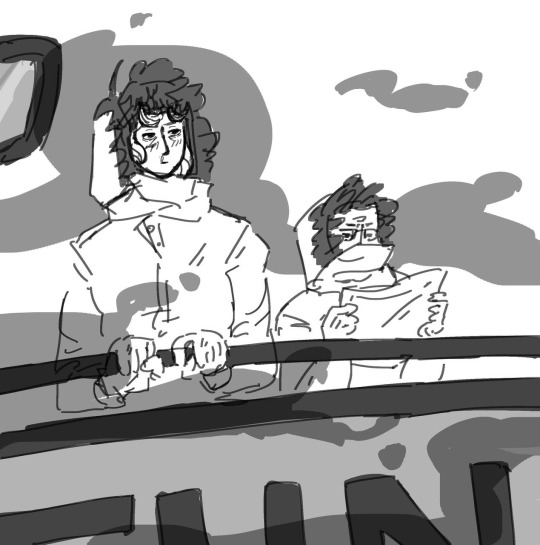
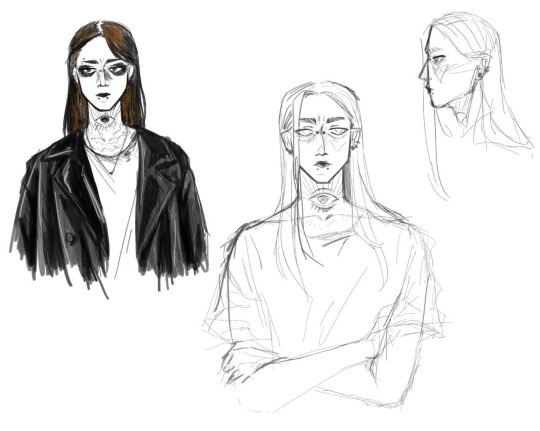
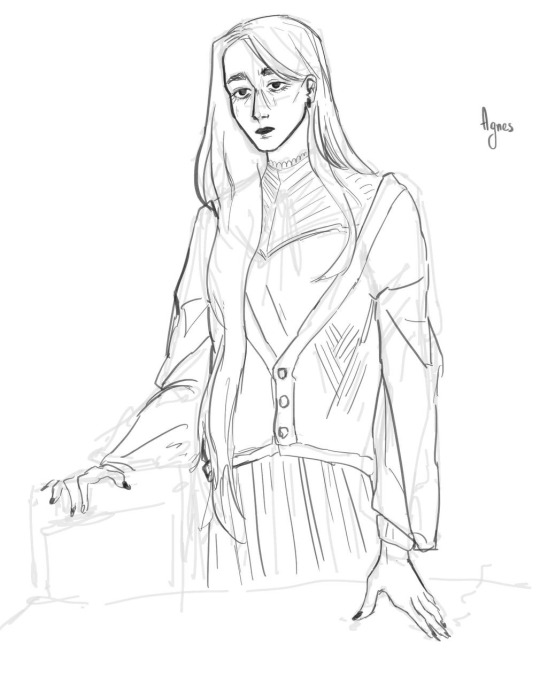
#my art#the magnus archives#tma#fanart#tma fanart#the magnus archive fanart#michael shelley#gertrude robinson#gerry keay#gerard keay#agnes montague#tma is taking over my thought and life#who am i to complain#i love being normal about a piece of media#agnes is so suite-pee by soad coded#gerry+mary are so forest by soad coded
80 notes
·
View notes
Text

the star of the show 💫
#she spins!! forever! harrowing if you think about it too much#very inspired by angelina ballerina NOT THE 3D monstrosity#i painted the curtains the rocks the floor and the tree with inks/watercolours#and the cat (i named her agnes) i animated in procreate#the bg is a painting by samuel davis i loveeee public domain artworks<3#enjoyyyy#mixed media#ballet#theater#artists on tumblr#animation#illustration#art#jitterbugbear art#digital art
132 notes
·
View notes
Text
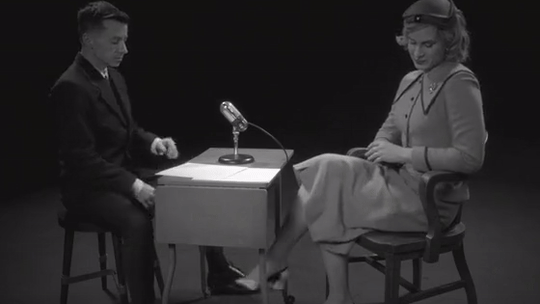
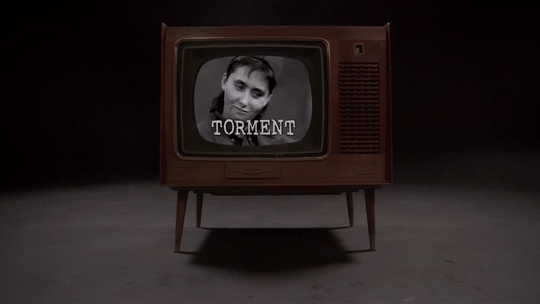




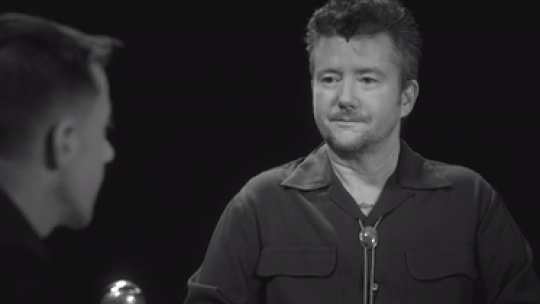


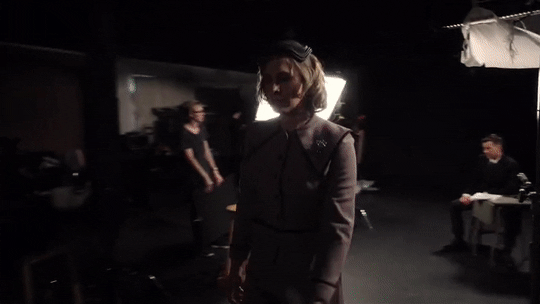
FRAMING AGNES (2022)
dir. Chase Joynt
The pseudonymous Agnes was a pioneering transgender woman who participated in an infamous gender health study conducted at UCLA in the 1960s. Her clever use of the study to gain access to gender-affirming healthcare led to her status as a fascinating and celebrated figure in trans history. This bland fiction and nonfiction utilizes Agnes's story, along with others unearthed in long-shelved case files, to widen the frame through which trans history is viewed. Through a collaborative practice of reimagination, an all-star cast of trans performers, artists, and thinkers take on vividly rendered, impeccably vintage reenactments, bringing to life groundbreaking artifacts of trans history.
(link in title)
#lgbt cinema#trans cinema#framing agnes#us cinema#lgbt#trans#transgender#usa#lgbt movie#trans movies#us movie#lgbt film#trans film#us film#lgbt media#trans media#queer cinema#north american cinema#chase joynt#angelica ross#silas howard#zackary drucker#jen richards#2022#2020s#2020s movies#2020s films#2020s cinema
35 notes
·
View notes
Text
DESPICABLE ME 4 WAS SO FUN- this is the one movie I always want sequels for
#despicable me 4#small movie fixation#this movie was fun#look say what you want but I LOVED it#gru despicable me#agnes despicable me#margo despicable me#edith despicable me#lucy wilde#movie commentary#small commentary#media commentary#no spoilers YET#it probably won’t take me long for this movie though
9 notes
·
View notes
Text
Magnus Archives Relisten 8, MAG 8 Burned Out, Spoiler-Free Version
Mag 8 analysis! I have listened to this episode twice and am okay mentally.
Haha Burned Out. Get it like- Burned Out like- get it it's like- get it- because. Burned out
Facts: Statement of Ivo Lensik regarding his experiences during construction at 105 Hilltop Road. Statement given March 13, 2007.
Statement Notes: This is a classic haunted house. Not a superstructure or cursed land or living space, but a house possessed by what once lived within it. Raymond Fielding lived in this house, and then he died in it, and he is going to make this everybody else's problem. He has unfinished business, he has a message he is trying to send. But like any spirit, you won't understand until it's too late.
Character Notes: I found Ivo to be a really compelling character. He had a positive demeanor, an interesting backstory, and a very strong approach to dealing with the supernatural. Overall a cool guy and awesome character I would have liked to hear more from.
Agnes' death is such a visceral image. It's a brief paragraph at the end of the statement. It's one of Jon's "And yet..." moments, intended to leave you with just a little bit of fear when you unplug the headphones. But that connection to the tree, to her childhood home. It's a simple section of text, but so vivid and full of imagery and meaning. Especially because we had only been exposed to her as a young child, and she left us as an improbably young but grown woman who we will never fully know or understand.
When the statement ended, the only thought going through my head was, "Mean Jon! Mean mean Jon!" He was foul with this one. First he goes on a tangent about schizophrenia and head trauma being second only to drug use as a means of seeing ghosts, then he immediately roasts Gertrude's filing system again.
He loves to go off about Martin and Tim being incompetent compared to Sasha, but who found a history of the house's ownership? Who interviewed Anna Kasuma? Who found Agnes' death report? Ya bois.
#podcasts#audio drama#rusty quill#tma#the magnus archives relisten#tma relisten#jonny sims#jonathan sims#media analysis#analysis#MAG 8#Burned Out#agnes montague#tim stoker#martin blackwood#sasha james#hilltop road#horror#horror podcasts#horror podcast#the magnus archives#magnus archives
9 notes
·
View notes
Text

(2013)
• Body/Head (Kim Gordon) - Coming Apart
• Queens Of The Stone Age - …Like Clockwork
• Tim Hecker - Virgins
• Hans Zimmer - Man Of Steel
• GB - Within These Machines
• Arcade Fire - Reflektor
• David Bowie - The Next Day
• Autechre - Exai
• The Haxan Cloak - Excavation
• Agnes Obel - Aventine
• Grouper - The Man Who Died In His Boat
• Atoms For Peace - Amok
• V/A - Sound City: Reel To Reel
• Nine Inch Nails - Hesitation Marks
• Washed Out - Paracosm
• The Knife - Shaking The Habitual
• Julia Holter - Loud City Song
• Majical Cloudz - Impersonator
• Chelsea Wolfe - Pain Is Beauty
• How To Destroy Angels - Welcome Oblivion
#digipak#music#cd#album art#physical media#hologram parade#compact disc#2013#2010s#kim gordon#qotsa#tim hecker#hans zimmer#arcade fire#david bowie#autechre#the haxan cloak#agnes obel#grouper#liz harris#atoms for peace#nin#nine inch nails#washed out#the knife#julia holter#majical cloudz#chelsea wolfe#htda#how to destroy angels
4 notes
·
View notes
Text
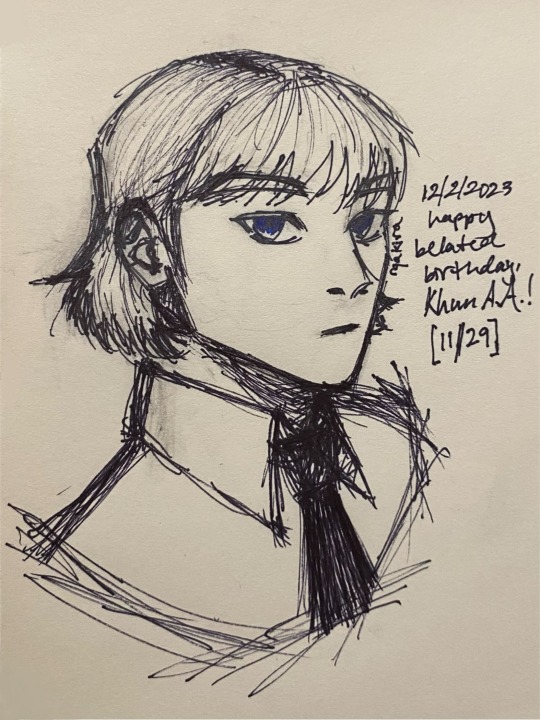
hi i drew this two weeks ago for khun aa’s birthday bc that was on november 29 and yes the drawing was late and yes this post is very late but wtv it’s fine i wanted to draw him even though i was a bit late bc i think he’s rly neat yk
i like him a lot <3
#khun#khun aguero agnis#khun aguero agnes#khun aa#tower of god#tog#tog fanart#tower of god fanart#khun aa fanart#khun aguero agnis fanart#khun aguero agnes fanart#traditional art#traditional drawing#ink drawing#ink art#traditional media#hand drawn#sharpie#fanart#art#artists of tumblr#artists on tumblr#fanartist#rq’s art
15 notes
·
View notes
Text
one of my twitter mutuals messaged that one of THEIR mutuals--not a shared acquaintance, apparently--had mentioned in passing a person on tumblr who was psychosexually obsessed with agnes callard and my friend went "omg there are Two of Them?!" reader. there were Not. it was just me
#sometimes you have an online brand and sometimes you have an Online Brand that transcends social media platform and acquaintance#sorry mom sorry gd sorry Agnes#philosopher polycule tag
20 notes
·
View notes
Text
Take all the phones away!
All the recent news reporting about local school districts “cracking down” on cell phones in public schools has me nearly laughing out loud.
Call me a hardline, no-nonsense conservative fanatic on this issue … but I have believed since the advent of cell phones that those devices have no place in a public-school classroom. Zero. None.
I long have been advocate for school districts confiscating…
0 notes
Text
And the people went in to their hide
From the start they didn't know exactly why, why
Winter came and made it so all look alike, look alike
Underneath the grass would grow, aiming at the sky
It was swift, it was just another wave of a miracle
But no one, nothing at all would go for the kill
If they called on every soul in the land, on the moon
Only then would they know a blessing in disguise
Tell me now of the very soul that look alike, look alike
Do you know the stranglehold covering their eyes?
If I call on every soul in the land, on the moon
Tell me if I'll ever know a blessing in disguise
The curse ruled from the underground, down by the shore
And their hope grew with a hunger to live unlike before
The curse ruled from the underground, down by the shore
And their hope grew with a hunger to live unlike before
14 notes
·
View notes
Text

Agnes Martin, White Flower, (oil on canvas), 1960 [Pinault Collection, Paris. © Agnes Martin Foundation, New York, NY / Adagp, Paris]
102 notes
·
View notes
Text





Agnes Scherer, The Notebook Simulations
#agnes scherer#contemporary art#painting#new media#sculpture#i worked really hard on these image descriptions
9 notes
·
View notes
Text
'Lucy Worsley Investigates'
Lucy Worsley © BBC
So, I finally got around to watching ‘Lucy Worsley Investigates’ on BBC. I always love watching anything with Lucy in it and this looked fascinating. It is a four episode series covering four different historical episodes that changed history – the Witch Craze, the Black Death, the disappearance of the Princes in the Tower, and the madness of King George III.
Worsley has a…

View On WordPress
#agnes sampson#bbc#black death#Death#Documentary#Edward V#francis willis#George III#lucy worsley#madness#Media#media review#plague#Princes in the Tower#Review#Richard Duke of York#Richard III#Witchcraft#witchcraze#Witches
3 notes
·
View notes